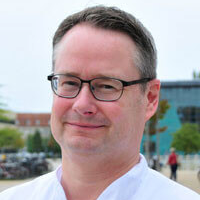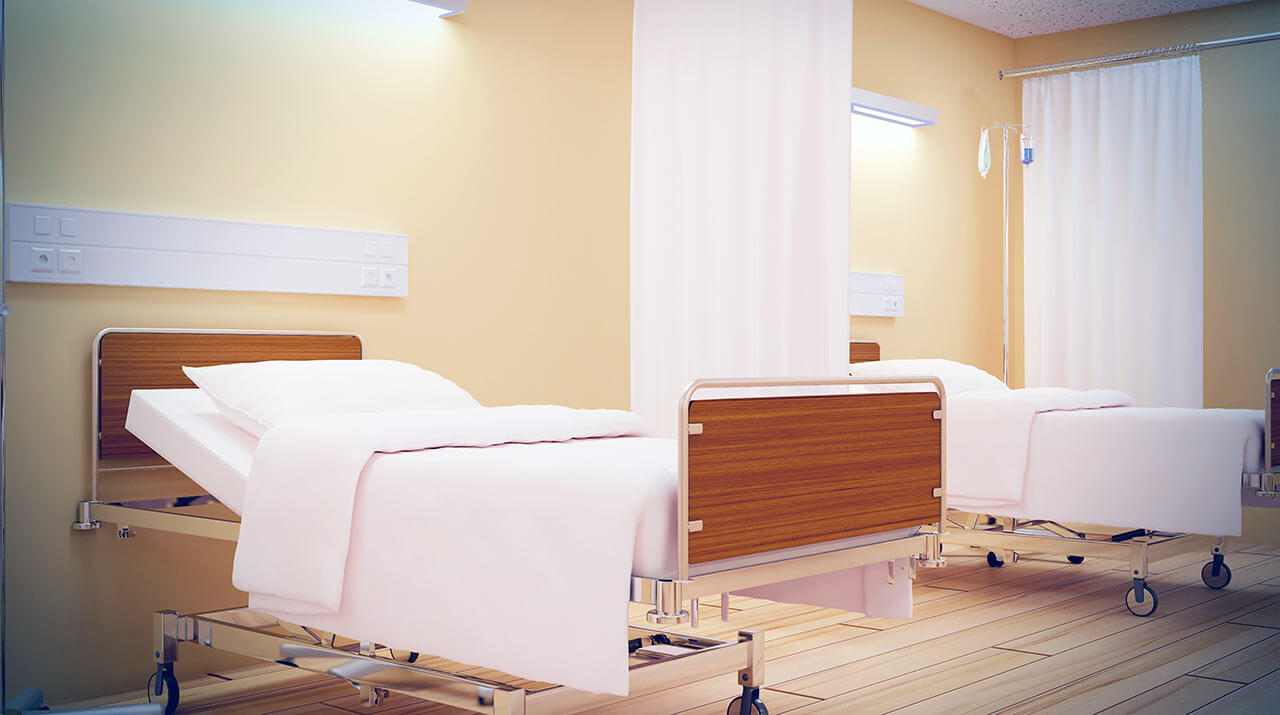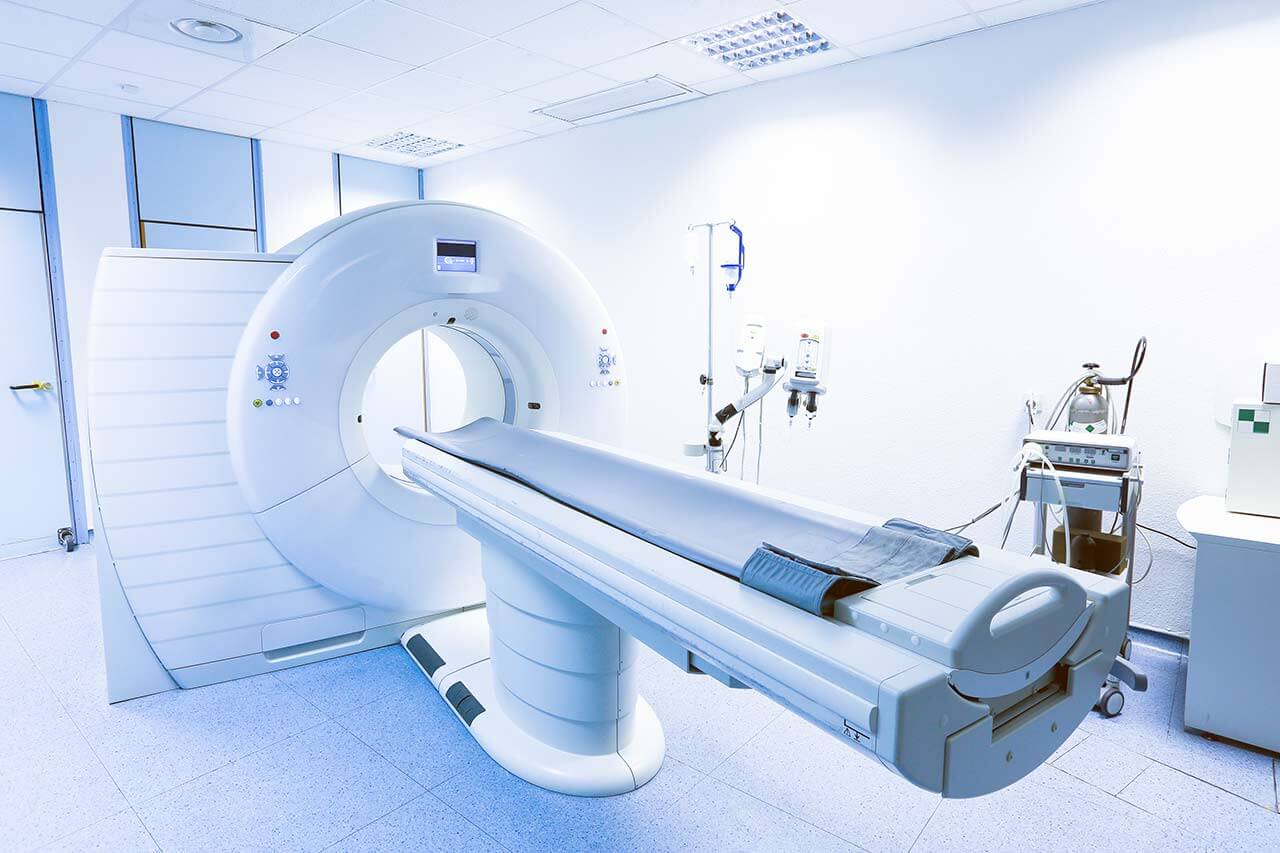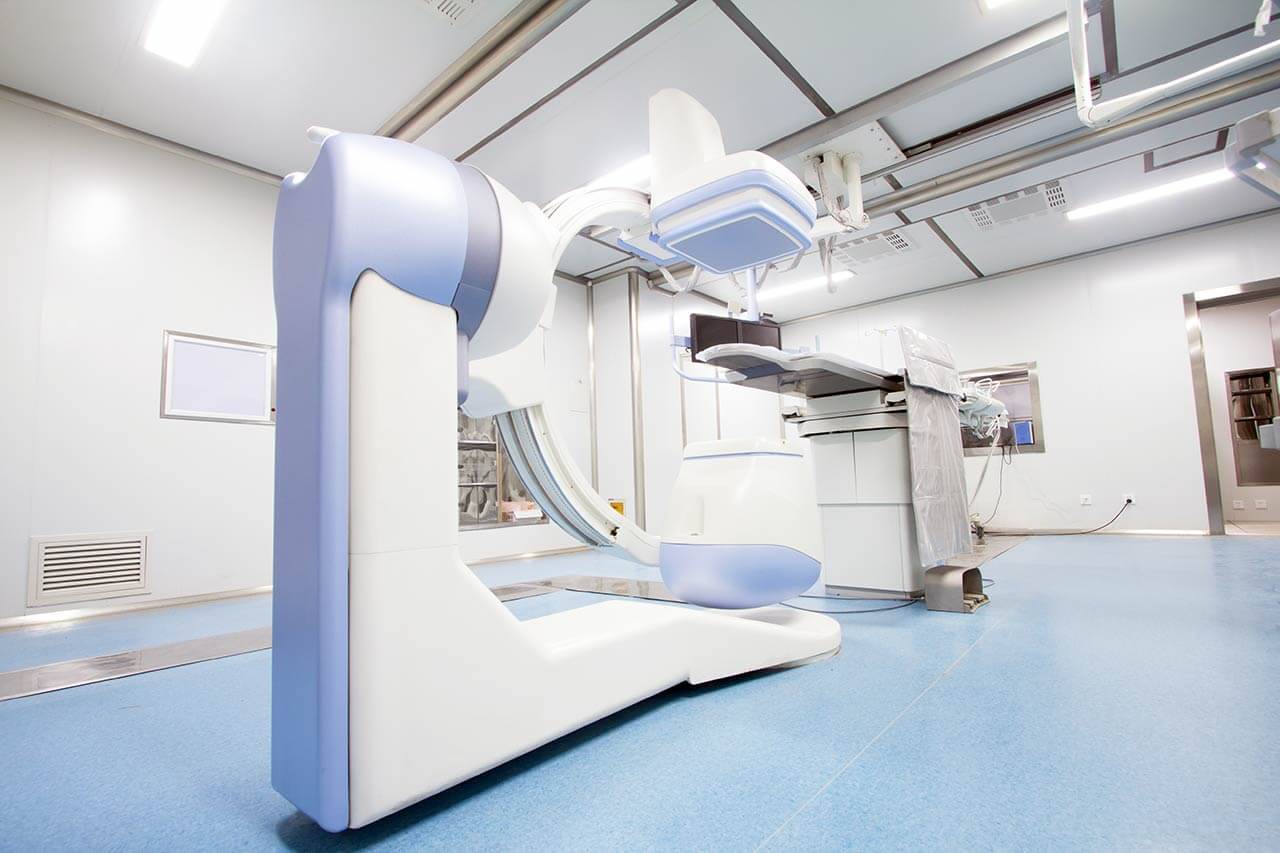
The program includes:
- Initial presentation in the clinic
- clinical history taking
- physical examination
- review of medical records
- laboratory tests:
- complete blood count
- general urine analysis
- biochemical analysis of blood
- TSH-basal, fT3, fT4
- tumor markers
- indicators of inflammation (CRP, ESR)
- indicators blood coagulation
- ultrasound
- CT/MRI scan
- preoperative care
- hotodynamic therapy (PDT)
- symptomatic treatment
- control examinations
- the cost of essential medicines and materials
- nursing services
- full hospital accommodation
- explanation of future recommendations
Required documents
- Medical records
- Photo of the affected body regions
- Biopsy results (if available)
Service
You may also book:
 BookingHealth Price from:
BookingHealth Price from:
About the department
The Department of Dermatology and Phlebology at the University Hospital Greifswald offers the full range of services in these medical fields. The department specializes in the prevention, diagnostics, and treatment of all diseases of the skin and its appendages, as well as venous pathologies. The key focus of the department's clinical practice is the treatment of malignant skin tumors. Doctors also have long experience in treating photodermatosis, occupational skin diseases, allergic skin reactions, psoriasis, and autoimmune skin lesions. The scope of tasks of the specialists at the medical facility also includes the treatment of venous diseases, such as chronic venous insufficiency, deep vein thrombosis, and varicose veins. The department's doctors provide high-quality medical care to patients with chronic non-healing wounds. The department has well-equipped laboratories for the analysis of skin scrapings, biopsy material, etc. There are also cozy treatment rooms and state-of-the-art operating rooms. The basis of clinical practice is the use of classical and innovative treatment methods. The team of the department's dermatologists always strives to provide an effective treatment, taking into account the aesthetic aspect. The Head Physician of the department is Dr. med. Andreas Arnold.
The department offers the services of a specialized Skin Cancer Center, whose high-quality medical services are certified by the German Cancer Society (DKG). Malignant skin tumors are quite common, but unlike many other types of cancer, skin tumors are often diagnosed in their early stages, which greatly increases the patient's chances for a complete recovery. The specialists at the center provide modern treatment for basal cell carcinoma, squamous cell carcinoma, and melanoma. Each clinical case is considered by an interdisciplinary tumor board, which assembles once every two weeks. The treatment regimen is developed cooperatively by doctors of related medical specialties, including dermatologists, oncologists, surgeons, radiologists, and radiation therapists. Whenever required, the tumor board includes oral and maxillofacial surgeons, otolaryngologists, as well as specialists in nuclear medicine and psycho-oncology. When treating early-stage skin cancer, the department's dermatologists often manage to avoid excision of tumors with a scalpel due to the use of innovative forms of therapy, such as PUVA therapy, photodynamic therapy, laser destruction, cryotherapy, extracorporeal photopheresis, electroexcision, and other techniques. End-stage skin cancer is treated using Mohs surgery, during which a surgeon removes the neoplasm and skin in layers, immediately checking the tissues for the presence of cancer cells under a microscope. In the case of the detection of cancer cells, another layer of the skin is removed under histographic guidance. This continues until all cancerous tissues are removed. The intervention is performed on an outpatient basis, after which a patient remains under medical supervision for several hours and receives recommendations for wound care at home. Local rather than general anesthesia is used for pain relief during the operation, which is an important advantage for patients.
The department's doctors have special competence in caring for patients with autoimmune skin lesions. The most common of these include systemic lupus erythematosus, urticaria, vitiligo, pemphigus vulgaris, and bullous pemphigoid. The treatment tactics for the above-mentioned diseases are based on drug therapy: a patient is prescribed anti-inflammatory and immunosuppressive drugs. The department's doctors keep pace with innovations in dermatology, so they have other methods of dealing with autoimmune dermatoses in their arsenal. One of them is immunoadsorption. This is an extracorporeal procedure, the therapeutic effect of which is achieved due to the antigen-antibody interaction. The first stage of immunoadsorption is the patient's blood sampling. Blood is passed through a device filled with immunosorbent, the properties of which make it possible to extract and bind harmful antibodies or antigens. The final step of the therapeutic procedure is the infusion of purified blood plasma into the patient's body. The therapeutic manipulation is absolutely painless and provides a good result.
An important place in the department's clinical practice is given to the treatment of vein diseases and leg ulcers. The department's doctors regularly treat varicose veins, chronic venous insufficiency, and deep vein thrombosis. The department uses contrast-enhanced phlebography, color duplex sonography, capillary microscopy, venous pressure measurement, transcutaneous measurement of blood oxygen tension, and other tests to assess venous flow. After the establishment of the diagnosis, a patient is prescribed an optimal treatment regimen. In many cases, doctors manage to eliminate the problem with the help of drug therapy with pills, ointments, and gels, as well as by wearing compression stockings and undergoing physiotherapeutic procedures. Complex clinical cases require interventional procedures and surgical treatment. For example, sclerotherapy, phlebectomy, stripping, and endovenous laser therapy are used to treat varicose veins.
The department's main clinical focuses include:
- Dermatology
- Diagnostics and treatment of malignant skin tumors: basal cell carcinoma, squamous cell carcinoma, and melanoma
- PUVA therapy
- Photodynamic therapy
- Laser destruction
- Cryotherapy
- Extracorporeal photopheresis
- Electroexcision
- Mohs surgery
- Chemotherapy
- Radiation therapy
- Diagnostics and treatment of benign skin tumors: hemangiomas, lipomas, papillomas, moles, warts, etc.
- Laser removal
- Cryodestruction
- Electrocoagulation
- Diagnostics and treatment of autoimmune skin lesions: systemic lupus erythematosus, urticaria, vitiligo, pemphigus vulgaris, bullous pemphigoid, etc.
- Drug therapy with anti-inflammatory and immunosuppressive drugs
- Immunoadsorption
- Diagnostics and treatment of occupational dermatoses
- Diagnostics and treatment of skin allergic reactions, including drug, food, and insect venom allergies
- Drug therapy
- Specific hyposensitization
- Diagnostics and treatment of hyperhidrosis (excessive sweating)
- Botox injections
- Laser therapy
- Diagnostics and treatment of photodermatosis
- Drug therapy
- Phototherapy
- Diagnostics and treatment of malignant skin tumors: basal cell carcinoma, squamous cell carcinoma, and melanoma
- Phlebology
- Diagnostics and treatment of acute venous insufficiency
- Conservative treatment with drugs, compression stockings, therapeutic exercises, and physiotherapeutic procedures
- Laser obliteration
- Sclerotherapy
- Mini-phlebectomy
- Diagnostics and treatment of deep vein thrombosis
- Drug therapy with anticoagulants
- Compression therapy
- Thrombolysis (blood clot dissolutions)
- Thrombectomy (direct removal of a blood clot from a vein)
- Diagnostics and treatment of varicose veins
- Conservative treatment with compression stockings, therapeutic exercises, and physiotherapeutic procedures
- Minimally invasive endoluminal laser therapy
- Ultrasound-guided sclerotherapy
- Laser therapy
- Stripping
- Diagnostics and treatment of leg ulcers
- Diagnostics and treatment of acute venous insufficiency
- Other medical services
The department's surgical options include:
- Dermatology
- Skin and mucous membrane biopsy, nail bed biopsy, testicular biopsy, muscle biopsy (upper arm and thigh)
- Surgical removal of benign and malignant skin tumors
- Sequential resection with primary, simple wound closure
- Tumor resection with further plastic reconstruction (artificial materials and the patient's own skin)
- Resection with preparation of the wound surface and follow-up closure of the defect with a flap (the Reverdin graft)
- Surgery for phimosis in lichen sclerosus (monitoring of the course of the pathology for more than 5 years)
- Lymph node removal after lymph node scintigraphy using Tc-99 with and without color coding (for malignant melanoma surgery)
- Surgery on the nail bed (Emmert's procedure) to repair an ingrown toenail
- Dermabrasion and removal of foreign skin bodies (within 18 hours after injury)
- Scar revision, including Z-plasty
- Acne removal with follow-up conditioning of the wound surface and covering the defect with a special mesh
- Surgery for rhinophyma
- Surgery for hyperhidrosis
- Phlebology
- Thrombectomy for acute thrombophlebitis (venous inflammation)
- Varicose vein ligation
- Saphenous vein crossectomy followed by stripping, also with a laser
- Laser angioplasty for varicose veins
- Sclerotherapy (including foam sclerotherapy)
- Surgery for chronic leg ulcers with follow-up plastic surgery
- Other surgical interventions
Photo of the doctor: (c) Universitätsmedizin Greifswald
About hospital
According to the reputable Focus magazine, the University Hospital Greifswald is included in the ranking of the best medical complexes throughout Germany!
The hospital is one of the oldest healthcare facilities in Germany, with long traditions and an excellent reputation. The history of the hospital begins in 1456, when the Faculty of Medicine at the University of Greifswald was founded. During this time, the hospital has managed to earn recognition in the national medical arena and gain prestige abroad. The hospital has 19 institutes and 21 specialized departments. The key to successful clinical practice is the combination of state-of-the-art equipment and highly qualified medical personnel who are actively engaged in the development of effective medical techniques and implement them in everyday practice.
The medical team of the university hospital has more than 4,400 employees, including world-famous professors who regularly undergo advanced training in the leading European and American hospitals, where they share their experience with foreign specialists. The doctors at the medical facility annually treat about 180,000 patients. At the same time, the specialists often provide medical care to patients with complex clinical cases, even in those cases that doctors at other medical centers consider hopeless. The hospital has more than 1,000 beds for inpatients, and many highly-specialized outpatient clinics are available in the medical facility for counseling and outpatient medical care.
The hospital presents all the fields of modern medicine. According to Focus magazine, the medical complex is recognized as one of the best in Germany for treating bowel cancer, bladder cancer, malignant brain tumors, skin cancer, multiple sclerosis, Parkinson's disease, dementia, cardiovascular pathologies, knee and hip pathologies, as well as ophthalmic and proctologic diseases. Diagnostic and therapeutic procedures are carried out in strict accordance with national and international standards, which ensures top-class medical care.
The medical team at the hospital makes sure that each patient feels as comfortable as possible during the therapeutic process. Doctors and nursing staff show humanity and understanding, striving to support each patient in every possible way on the path to recovery.
Photo: (с) depositphotos
Accommodation in hospital
Patients rooms
The patients of the University Hospital Greifswald live in comfortable single and double rooms. The patient rooms are made in bright colors and are quite cozy. The furnishings of a standard patient room include an automatically adjustable bed, a bedside table, a TV, and a telephone. The patient room has a table and chairs for receiving visitors. There is also free Wi-Fi in the patient rooms.
If desired, patients can live in enhanced-comfort rooms. In such rooms, patients are additionally offered toiletries, a bathrobe, and a change of towels.
Meals and Menus
The patients of the hospital are offered three healthy and tasty meals a day: a buffet breakfast, a hearty lunch, and dinner. The hospital also houses a cafeteria where one can have a tasty snack, a cup of aromatic coffee, tea, or soft drinks.
Patients staying in enhanced-comfort rooms are offered a special menu with a wide range of main courses, appetizers, desserts, and drinks.
Further details
Standard rooms include:
Religion
The services of representatives of religions are available upon request.
Accompanying person
Your accompanying person may stay with you in your patient room or at the hotel of your choice during the inpatient program.
Hotel
You may stay at the hotel of your choice during the outpatient program. Our managers will support you for selecting the best option.




